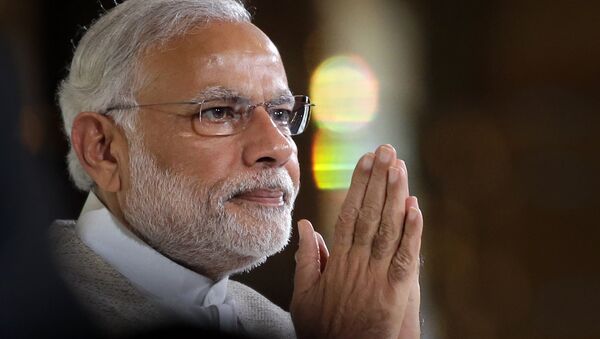Prime Minister Narendra Modi’s visit to Tehran this week may have been late in coming; it did hold the promise of providing solidity to the relationship. The problem in such Indo-Iranian overtures that has prevented a good relationship between the countries has been that it has never really evolved beyond flirtation. The breakthrough that came in the engagement arrived almost two decades ago under Prime Minister Narasimha Rao.
Since then, New Delhi has always exhibited trepidation when visiting Tehrany, worrying that the USA ('Big Brother') could be watching, hoping to thwart Indo-Iranian relations. The brilliant idea of developing Chabahar Port and using its facilities to connect geo-strategically to Central Asia on the one side and North West Asia on the other evolved during Rao’s government.
But ever since, the idea has only bounced between various government desks without seeing much effort to bring it to fruition. However, the partnership did help both Iran and India maintain a foothold in Afghanistan when the Taliban was in charge and threatened both countries. The Northern Alliance of Tajiks and Uzbeks in the far northern province of Afghanistan was materially supported by India and Iran via Iranian territory.
Not surprisingly, Modi’s visit to Tehran happened a couple of months after his visit to Riyadh. The political mess in West Asia also has an element of the competition between Iran and Saudi Arabia for political and economic supremacy in the region. This adds a significant sectarian angle to understanding the ongoing conflicts in the region.
Hence, Prof AK Pasha, the well-known expert on the region at Jawaharlal Nehru University, describes the engagement as “uneven.” He says that India’s increasingly deep involvement with the USA and Israel makes Tehran suspicious.
However, Narendra Modi delivered vaulting rhetoric in the Iranian capital “India and Iran have always been partners and friends. Our historical ties may have seen their share of ups and downs. But, throughout our partnership, it has remained a source of boundless strength for both of us. The time has come for us to regain the past glory of traditional ties and links. The time has come for us to march together. In this endeavor, you, the eminent scholars, have a defining role to play.”
On another occasion at a media event, Modi had also stated, “Later today we are going to sign the trilateral Transport and Transit Agreement with the participation of Iran, India and Afghanistan. It will be a historic occasion. It will open new routes for India, Iran and Afghanistan to connect among themselves. India and Iran also share a crucial stake in the peace, stability and prosperity of the region. We also have shared concerns at the spread of forces of instability, radicalism and terror in our region.”
Still, as Prof Pasha points out, the much hyped Iran-Pakistan-India natural gas pipeline remains still-born even though Iran had really pushed the project hard to reach India. After New Delhi’s feet-dragging for years – with the American sanctions in mind – the pipeline is now an I-P project other ‘I’ missing.



